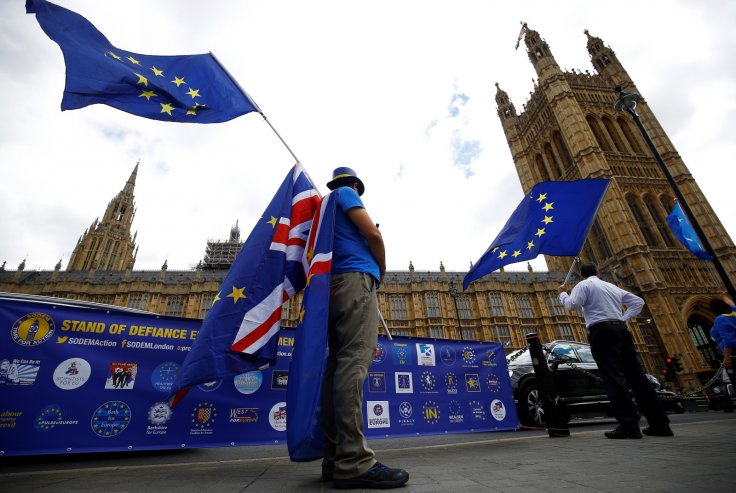
Unilever's reputation for valuing all stakeholders rather than just shareholders boosted its corporate governance credentials but landed the consumer goods firm in trouble when it tried to move its headquarters from London.
A growing list of British institutional refuseniks and the prospect of a retail investor rebellion in the context of Britain's planned exit from the European Union prompted the company to reverse course and ditch the plan on Friday, three weeks before it was to be voted on.
Interviews with UK shareholders, advisors and analysts paint a picture of Unilever (ULVR.L) (UNc.AS) as either miscalculating the level of dissent to becoming a single corporate entity headquartered in the Netherlands or dismissing it in the interests of a broader vision they were convinced was right.
"Better approaches are possible and the problems for shareholders were foreseeable," said Iain Richards, head of responsible investment at Columbia Threadneedle Investments, one of the major institutional agencies to publicly oppose the move.
The change would have seen Unilever, the Anglo-Dutch maker of Marmite and Ben & Jerry's ice cream, be kicked out of Britain's blue-chip FTSE 100 index, forcing funds mandated to track the index to sell their shares and pressuring the price for remaining shareholders.
Small retail investors added to the momentum opposing the move - an ill-communicated reaction following a surprise $143 billion bid from Kraft-Heinz (KHC.O) last year.
Being headquartered in the Netherlands, with its different corporate law, was seen as a move that might have protected it from unwanted takeover bids in the future, among other incentives.
"Unfortunately, it started to get presented in the retail world in the context of Brexit, that 'we want to keep Unilever British', and I think that tipped it over the edge," said one top-30 shareholder, who declined to be named because he is not authorised to speak to the media.
In recent weeks, Unilever had gone to great lengths to aggressively market its vision of how a new single corporate entity headquartered in the Netherlands would be good for the company and all its shareholders.
"They were overly focussed on the benefits to everyone, as opposed to the concerns of UK shareholders," said Liberum analyst Robert Waldschmidt. He characterised the U-turn as a "bloody nose" for Polman, who is likely nearing the end of a ten-year tenure, but said losing the vote outright would have been worse.
"It would have been like a vote of 'no confidence'."
Public declarations of opposition to the move were around 12 percent of its London-listed share capital heading into Friday's announcement, nearly half of the shares by value needed to vote it down, based on a 100 percent turnout. The threshold for an expected 80 percent turnout was correspondingly lower.
Unilever said it engaged with over 200 shareholders about its proposal, and said it had broad support from most of them, who agreed that a single structure, with a single pool of equity, would be simpler and more efficient.
Shareholders paint a different picture.
"There was very little genuine engagement or dialogue. It was just them telling us what they were doing," said the top-30 shareholder, who had warned Unilever that FTSE inclusion was critical. "They simply ... viewed us as casualties of war."
Unilever said it held extensive talks with index operator FTSE Russell to try to get an exemption that would have allowed it to stay in the index, but was unsuccessful. Instead, Unilever said it would have an increased weighting in the EuroStoxx index.
CEO Paul Polman, who is expected to step down next year, was notably absent from the most recent public discussions of the move.
Two sources suggested that Chief Financial Officer Graeme Pitkethly, who was heavily involved in this effort along with Dutch Chairman Marjin Dekkers, may have edged lower in the company's internal ranking after the debacle.
Shareholder Ali Miremadi of Swiss asset manager GAM said that sometimes Unilever shareholders had been made to feel their concerns about performance were very near-term, whereas Unilever preferred to focus on the long term.
He said he didn't see the U-turn as a black eye, but rather something they just tried and didn't work. "I think they should just get on with it and try to sell more ice cream," he said.








